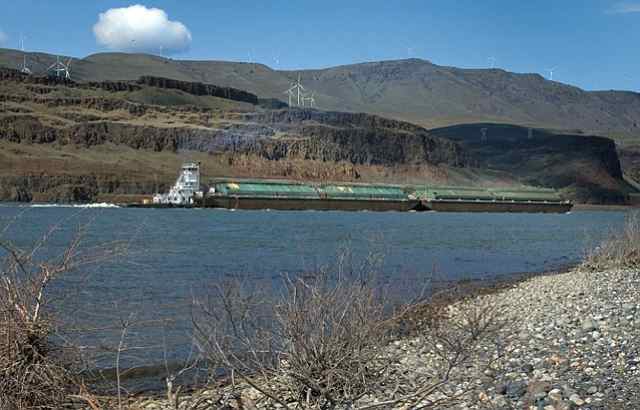forum
library
tutorial
contact

Study Shows Excessive Foreign
Farm Support Costing U.S. Wheat
by George Plaven
East Oregonian, September 14, 2015
|
the film forum library tutorial contact |

|
Study Shows Excessive Foreign
by George Plaven
|
A new study shows excessive domestic farm support in China, India, Turkey
and Brazil are distorting the trade market, hurting U.S. wheat growers.
 Excessive farm subsidies in several advanced developing countries might be costing U.S. wheat farmers nearly $1 billion per year in revenue, according to the results of a new study released Monday.
Excessive farm subsidies in several advanced developing countries might be costing U.S. wheat farmers nearly $1 billion per year in revenue, according to the results of a new study released Monday.
The study, paid for by the U.S. Wheat Associates and National Association of Wheat Growers, focuses specifically on China, India, Turkey and Brazil, where the industry groups say governments are supporting domestic wheat production at levels much higher than what they agreed to as members of the World Trade Organization.
By over subsidizing production, those countries end up with a surplus of domestic wheat that competes with U.S. and global exports, said Dalton Henry, director of policy for the Wheat Associates. The result is a distorted trade market with artificially deflated prices.
About half of all U.S. wheat is exported, including a whopping 85-90 percent of Oregon's crop -- the majority of which is grown in Umatilla and Morrow counties.
"What other countries do has a big and significant impact on the revenue of U.S. wheat growers," Henry said. "I think the overall total loss in revenue seen to these programs has been surprising."
The goal of the study, conducted by agricultural economist Dermot Hayes with Iowa State University, was to analyze what would happen to U.S. wheat if domestic support in China, India, Turkey and Brazil were removed. Results showed U.S. production would increase by more than 53 million bushels, and farm gate prices would increase by nearly 30 cents per bushel.
As the largest world consumer of wheat, China's subsidies have had a particularly compelling effect, Henry said. China currently supports 47 percent of the value of its domestic production, far exceeding its agreement of 8.5 percent under the World Trade Organization.
Hayes' figures show U.S. wheat growers could capture an additional $548 million annually if subsidies were eliminated in China, along with $358 million in India, $172 million in Turkey and $23 million in Brazil. The study indicated the four countries together would increase imports by nearly 10 million metric tons, with the U.S. in position to capture 20 percent of that growth.
And, even with the changes, Hayes argues China, India and Turkey would still be 90 percent self-sufficient in wheat production.
U.S. Wheat Associates is asking the countries to abide by their commitments to the World Trade Organization as the latest Doha Round of negotiations continues among members, Henry said. Increasing subsidies likely stems from political pressure within the countries to increase food security, he said, though it actually drives up the cost for consumers by reducing competitive imports from America and other trade partners.
"I think part of it is just raising awareness of the issue," Henry said. "It's definitely not an easy answer, and not one we expect to be solved within the next several months."
Brett Blakenship, an eastern Washington wheat farmer and current president of the National Association of Wheat Growers, said the countries' "market-distorting policies" are in part to blame for wheat prices falling 30 percent over a year ago, hitting family farms especially hard.
It's already been a tough production year for Oregon wheat, with drought expected to cut into yields by roughly 15 percent statewide. Blake Rowe, CEO of the Oregon Wheat Growers League, said soft white wheat prices have fared relatively well compared to other types of wheat, but have still slipped on the export market.
All farmers can do is continue to produce a quality produce and weigh in to the government on trade issues, Rowe said.
"How hard the U.S. pushes on this is up to the policy-makers. It does matter," he said.
learn more on topics covered in the film
see the video
read the script
learn the songs
discussion forum
